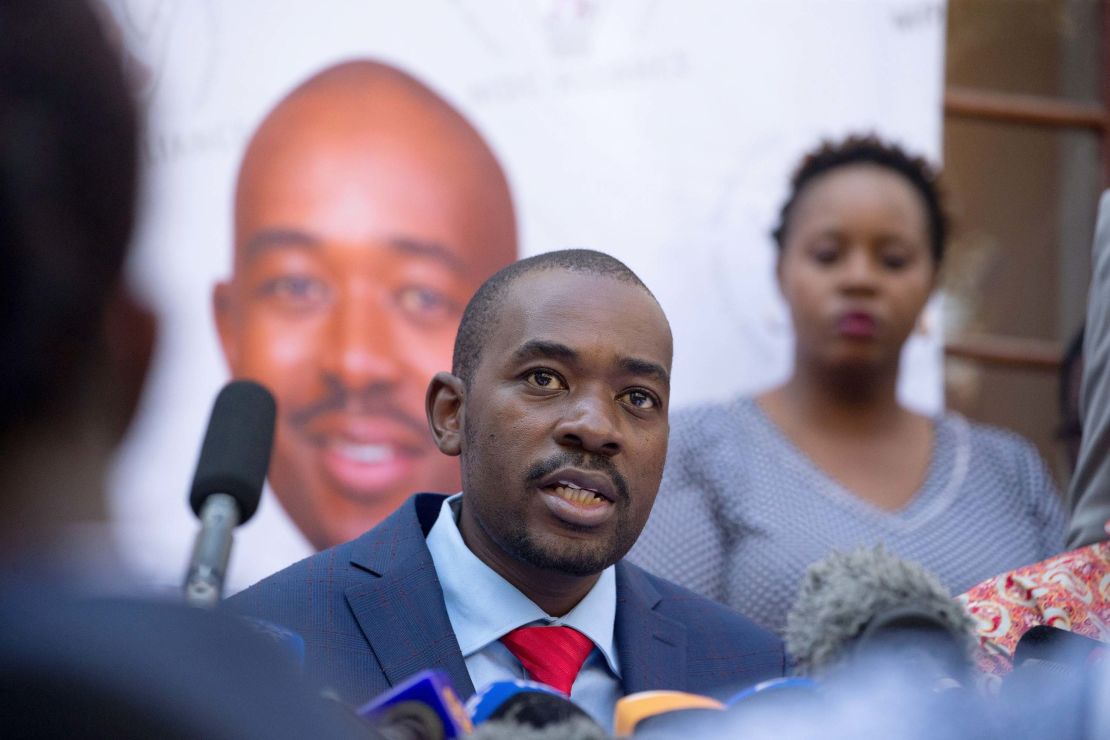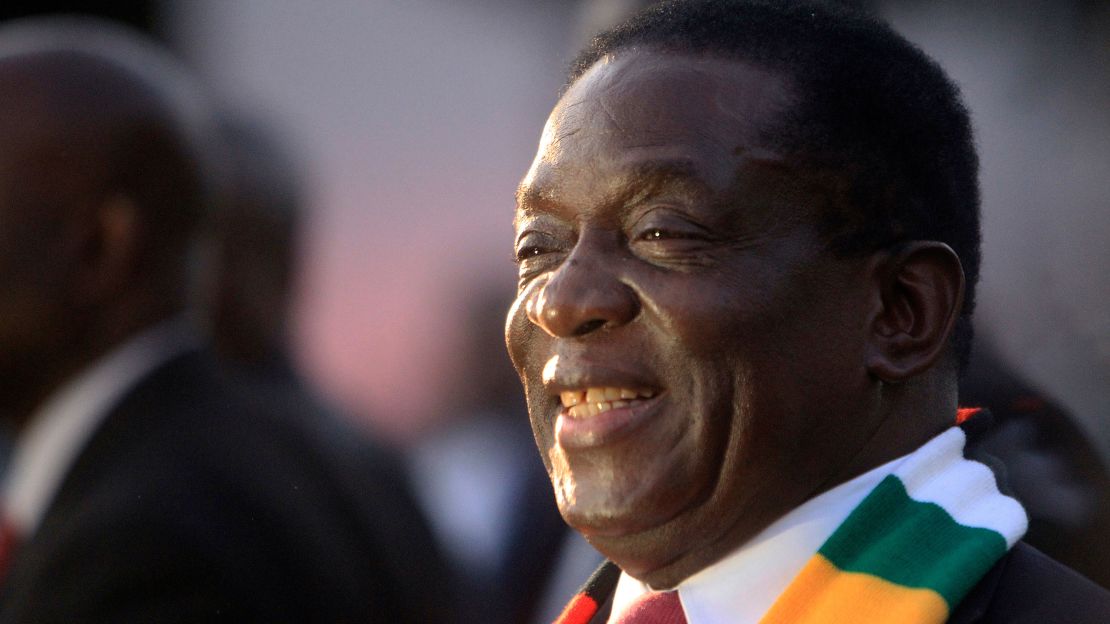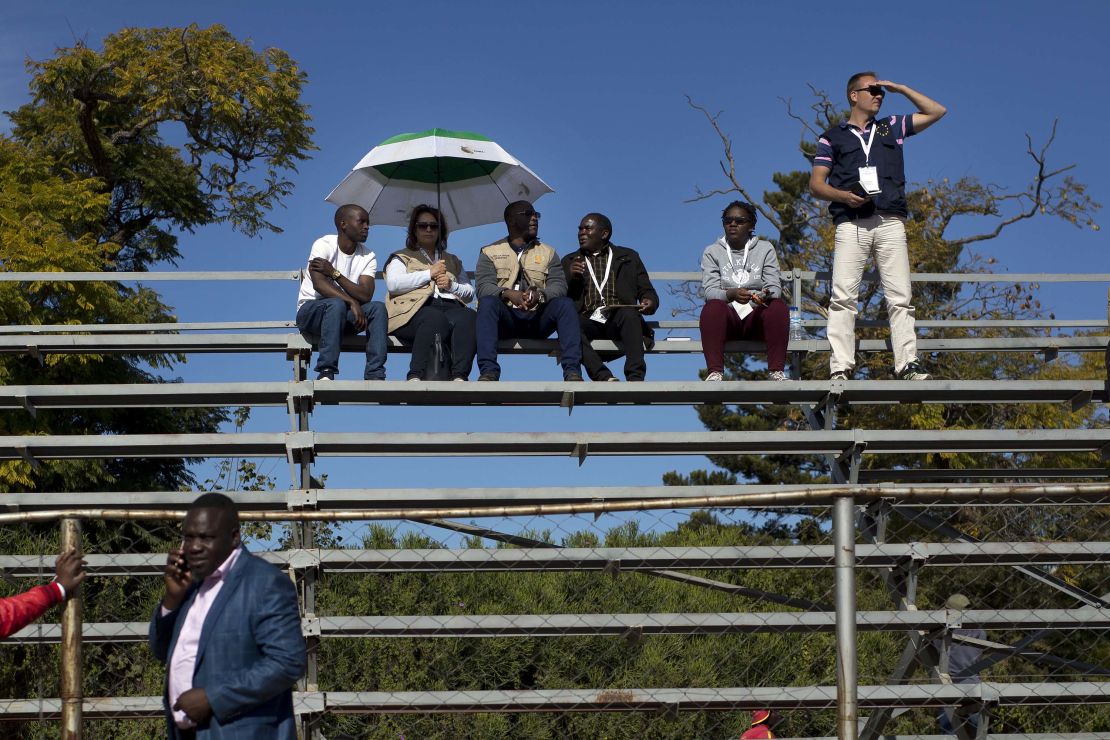Zimbabwe’s pursuit of stability appeared uncertain Friday after the country’s main opposition leader said his party would challenge the results of the presidential election, labeling them “fraudulent and illegal.”
A day after President Emmerson Mnangagwa was declared the winner of the vote, Nelson Chamisa, leader of the Movement for Democratic Change, told a news conference the vote was “anything but a free and fair.”
The landmark vote – Zimbabwe’s first since the toppling of strongman Robert Mugabe – was being closely watched, with election observers and foreign investors looking on to see if the country had shed its previous reputation.

Chamisa, who at 40 is the country’s youngest presidential candidate, said his party was working “around the clock with a legal team” to put together a plan of action following the results, but he did not give any details.
“As far as we are concerned this presidential result is fraudulent, illegal, illegitimate, and characterized by serious credibility gaps and some serious legitimacy issues that we feel must be raised,” Chamisa said at the news briefing.
The opposition leader’s first attempt to hold a press conference Friday was thwarted after police stormed the Harare hotel where he was scheduled to speak.

For reasons that were unclear, police escorted journalists away from the area.
A Movement for Democratic Change representative told CNN the police had broken it up because they thought it was an “illegal political gathering.”
After a brief standoff, police allowed accredited journalists back into the hotel.

Mnangagwa condemned the police action, tweeting: “The scenes today at the Bronte Hotel have no place in our society and we are urgently investigating the matter to understand exactly what happened. Over the past nine months we have protected freedom of speech, of assembly and the right to (criticize) the government.”
Following Chamisa’s news conference, Mnangagwa called for peace and unity.
Speaking at the State House in Harare, he said, “We cannot allow violent actions of few to detract from democratic expression of the many.”
Mnangagwa sought an independent commission to investigate violent clashes this week and defended the vote as “a free, fair and credible election.”
“Whoever you voted for, now begins the time to join hands for us to forge for a better future,” he said.
“I pray to be a listening president, a fair president, a responsible and inclusive president.”
On Wednesday, six people died following clashes between security forces and protesters in the capital as opposition supporters alleged vote rigging following the release of partial parliamentary election results.

The country is anxious to ensure the elections are considered free and fair to lure back foreign investment and resuscitate its ailing economy.
Zimbabwe, which suffered crippling hyperinflation under Mugabe, needs the International Monetary Fund to start giving it loans again. It also needs the United States, European Union and others to lift sanctions.
On Friday, US State Department spokeswoman Heather Nauert said that “Zimbabwe’s success in delivering an election day that was peaceful, and open to international observers, was subsequently marred by violence and a disproportionate use of deadly force against protestors by the security forces.”
Nauert’s statement said the US will review voting data collected by international and local observation teams to make a complete assessment of the election.
Mnangagwa – who according to the election commission late Thursday won 50.8% of the vote – took power in November after helping orchestrate a de facto coup against Mugabe who had served with for decades.
Known as “the crocodile” for his political cunning and longevity, the 75-year-old has tried to rebrand the ruling Zanu-PF party, pledging to heal divisions and rebuild the country.
But Mnangagwa is widely considered to represent a continuation of Mugabe’s rule because he worked closely with the former leader for more than 40 years, first as his special assistant during the 1977 liberation war, and later as security minister and justice minister.
‘Biggest challenges’
On Friday, South African President Cyril Ramaphosa called on all parties to accept the election results and “follow legal remedies provided for in the constitution and electoral law.”
In a statement, Ramaphosa said he had called and congratulated Mnangagwa and expressed a commitment to “enhance the historical, political and fraternal relations which exist between South Africa and Zimbabwe.”
The statement is likely to be interpreted as an important endorsement for Mnangagwa as he looks to defuse tensions and consolidate his victory.
European Union election observers on Friday also urged that the results be fully explained to the public.

“One of the biggest challenges this election faces is a lack of trust in all aspects,” Mark Stevens, deputy chief observer of the EU Election Observation Mission to Zimbabwe, told CNN.
“We think now that the result has been given, we stress very strongly it needs to be fully explained how this result was ascertained, broken down by constituency, by polling station, so everyone can see how the result was ascertained and be confident about it, particularly as the gap was quite narrow.”

Stevens also said his group had noted voter intimidation, media bias, misuse of resources and an imbalance in funding as some of the problems ahead of and during the vote.
CNN’s David McKenzie and Brent Swails reported from Harare, and James Masters wrote from London. Bard Wilkinson and Columbus Mavhunga contributed to this report.



















